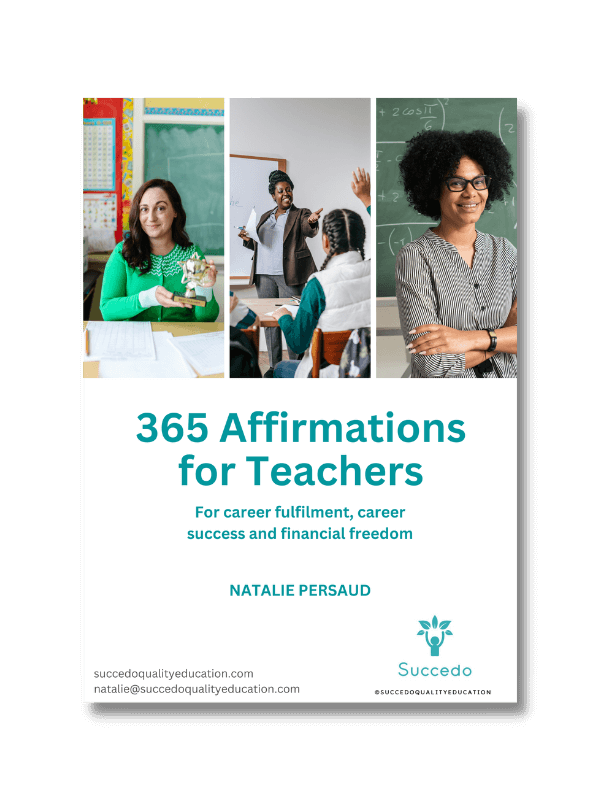This article is a critical reflection of my own philosophy of education. It will look at my personal philosophy, how literature and influences helped to shape it and the impact it has on my practice as a teacher and now a principal.
I chose education for the adrenalin rush of watching a person learn, develop and take value from my knowledge. I specifically chose Further Education (FE) initially for the freedom within the realms of teaching this level. I also felt that it would be easier teaching students who chose to take the subject and study further rather than those who were made to (compulsory education). FE currently covers ages 14-90 (Doughty, 2015) where the younger students may not get on within a school environment (14-16) or are now taking A-Levels or BTEC/NVQs (16+) in order to progress onto higher education. The other end of the age spectrum could be because they wish to increase their work prospects or because to pursue an interest. Doughty also outlines that the FE sector is not contained to four walls but is also available in prisons, charities, adult community education centres and workplace environments.
After teaching in FE for some years, it was a joy to watch people from various backgrounds develop and succeed after being deemed a failure at school. As a practitioner, I want to continue to help students develop further. Many times, I saw students who were ‘lost’ and didn’t know where or how they could fit into society. I would work with individuals to help develop their skills and support them to recognise the options away from crime or benefits. For example, one student returned to tell me how well he was doing. Previously, he would skip classes and was involved in gangs, drugs and crime. As a teacher, I would encourage him to attend his classes, sometimes by walking him to them to ensure he was in class to do the work. He was attending university outside of London and was in the process of putting his previous life behind him. By this student continuing with education, it helped to promote and allowed him to contribute positively to society. As a principal now, I hope to be able to continue this for as many students as I can through filtering my philosophy to my teaching and support staff.
School is where a person learns the vitally important basics. As learners, I believe we must have a foundation to build our knowledge upon to become open minded and grow as a person. I believe education should support and enable us to think at a deeper level and helps us to understand the ripple effects of actions. According to Briscoe (1996-2019), education can help to deter people from crime and enable them to become financially independent leading to an increase in confidence for the person and an altogether healthier society.
As the specialist with subject knowledge, I believe teachers should set the basic curriculum for their learners. As a former FE teacher, the freedom the BTEC syllabus, compared to the A-Level syllabus, meant that if my students had a sound knowledge of the basics and could demonstrate this, I could then stretch and develop them further, easliy. This has influenced my teaching ideology a great deal as I support this way as it allows students to put their new knowledge into practice and allows for stretch and challenge when it comes to the criteria and industry requirements. As the student continues to learn and develop, I believe they should be guided rather than taught. They should be given the facts or basics for that level and allowed to explore independently.
I believe education should be compulsory for the basic level of learning and should remain so until a person has learned the basics and can positively contribute to society, as we saw earlier with Briscoe’s research. Basic education should be state funded up to achievement or the age of 18 as the state would then benefit from the persons education through their contribution to society. According to the UK government website, a person must stay in education till they are 16, thereafter they have a choice of options – stay in full time education, start an apprenticeship/traineeship or spend 20hours per week working or volunteering while in part-time education or work. I believe that education after this should firstly be means tested for grants and bursaries. After this, grants should be awarded via further assessment of the person studying the subject and their proposed contribution to society. For example, someone who wants to study sculpture at undergraduate level should be means tested and then assessed on how they plan to use their sculpting degree to contribute to society should also be assessed. Currently, there are grants and bursary funds available for anyone studying in further education (Gov.uk). If you wish to study a level one or two course, this is funded as well as if you are on certain benefits. This fits with my ideology that the government should be obligated to ensure all citizens are educated to a basic level and are able to contribute positively to society. However, if you move to higher education or are 19+, you must take a loan out. Slaughter (2017), suggests every government’s most important priority worldwide should be to ensure its citizens are educated, so it is in the government’s interest to fund education. This should then encourage people to become positive, productive members of society.
A teacher’s role is to impart knowledge to the student using appropriate methods for their age and learning level. A teacher should be an expert in their primary subject but must be educated to a higher level than any subject and level they are teaching. Teachers should use appropriate methods to impart knowledge related to age and level, using a variety of differentiated methods. To motivate, a teacher could use their own reflections, rewards/punishments, draw upon their own experience, use case studies to illustrate successes, look at progression opportunities. Teaching methods vary widely across the world. What works in China is what the UK system has been increasingly moving away from. The Chinese favour “chalk and talk” (Donnelly, 2014) whereas western countries favour collaborative learning. According to Donnelly, this approach is leading to under performance from students in the West. However, we should then question how education is measured and are the Chinese teaching to tests as opposed to developing the individual. The answer should lie with governments and the country’s culture and society. This means that there may always be a large variance in education and how to measure it. This could then be the same for learning environments. I agree with Thomas (2013) and think the best teaching environment is one which inspires and supports the learning and is representative of the subject. For example, teach science in a laboratory rather than a sports hall with desks and stools. Resources should support and enhance the learning experience rather than be the learning, according to research at Westminster University. A handout should reinforce learning and prevent excessive notetaking, as students are becoming reliant on handouts rather than taking their own notes.
I believe the role of the student should be to navigate, behave and live in society. Sibuyi (2017) suggests that students play an important role by strengthening and improving society. Sibuyi suggests many ways in which students contribute positively to society by helping others with their education, fighting for injustice and highlighting anti-social acts in society. I disagree that learning should involve memorising unless it is to illustrate a fact on which learning will build upon. I believe, like Dennis (n.d) suggests, memorisation and learning, or understanding, are very different. Memorisation is often the first method encountered within teaching through repetition for younger students. However, as the student gets older, they should be encouraged to develop an understanding to encourage deeper thinking, enabling them to become more independent and able to form their own opinion and theories. Unlike Flemming (2019), I disagree with a student only having one learning style (visual, auditory, read/write and kinaesthetic – VARK). I believe student’s learning needs differ daily and will be different according to several external factors. What may work one day, may not work for another. For example, knowing when to use mixed versus similar ability or individual versus group work. The choice should depend upon the lesson being delivered, the activities and the learning outcomes. I don’t believe in segregating males and females as both can learn a lot form each other, and I believe learning should be about sharing experiences and knowledge in order to move forward.
In conclusion, I had initially thought my ideology would place the emphasis on the individual and their personal development due to my experiences as a teacher and a student. However, when reflecting upon my philosophy, it appears I place emphasis on society. According to Teece and Knowler (2019) this is where education is looked upon as instrumental with its goal being the improvement of society. Education is therefore seen as essential for the public’s (society) rather than the individual’s good. With the two-tiered system currently in place in the UK means that the skills-based curriculum with the emphasis on competencies and skills could be prioritised over academic. There is also the danger that vocational subjects may take precedence over the academic ones. It would be interesting to explore further a system where subjects are treated as equal rather than having a hierarchy.
References
Briscoe, C. J. (1996-2019), How Education Can Change Life, Accessed 23/02/2019, https://www.selfgrowth.com/articles/how-education-can-change-life
Dennis, H. (n.d), Memorization vs. Understanding, accessed 20/02/2019, http://thepeakperformancecenter.com/educational-learning/learning/principles-of-learning/memorization-vs-understanding/
Donnelly, K. (2014), What’s the best teaching method?, accessed on 20/02/2019, https://www.weforum.org/agenda/2014/11/whats-the-best-teaching-method/
Doughty, R. (2015), Why teach in further education?, Accessed on 23/02/2019, https://www.aocjobs.com/article/why-teach-in-fe/
Gov.uk, n.d, School leaving age, accessed 22/02/2019, https://www.gov.uk/know-when-you-can-leave-school
Gove.uk, n.d, Further education courses and funding, Accessed on 22/02/2019, https://www.gov.uk/further-education-courses/financial-help
Sibuyi, A. (2016), Role and importance of Students in Society, Accessed 20/02/2019, https://www.news24.com/MyNews24/role-and-importance-of-students-in-society-20160315
Slaughter, A. 3 responsibilities every government has towards its citizens, accessed 19/02/2019, https://www.weforum.org/agenda/2017/02/government-responsibility-to-citizens-anne-marie-slaughter/
Teece, G. M and Knowler, H (2019), Key Ideologies of Education, accessed on 22/01/2019, https://vle.exeter.ac.uk/mod/page/view.php?id=841881
Thomas, K. (2013), A classroom for the 21st century: where are the best places for learning?, accessed on 20/02/2019, https://www.theguardian.com/teacher-network/2013/may/14/best-places-for-learning-21st-century-classroom
Westminster University, n.d, How to use handouts effectively, accessed 20/02/2019, http://www2.wmin.ac.uk/mcshand/TEACHING/handouts







